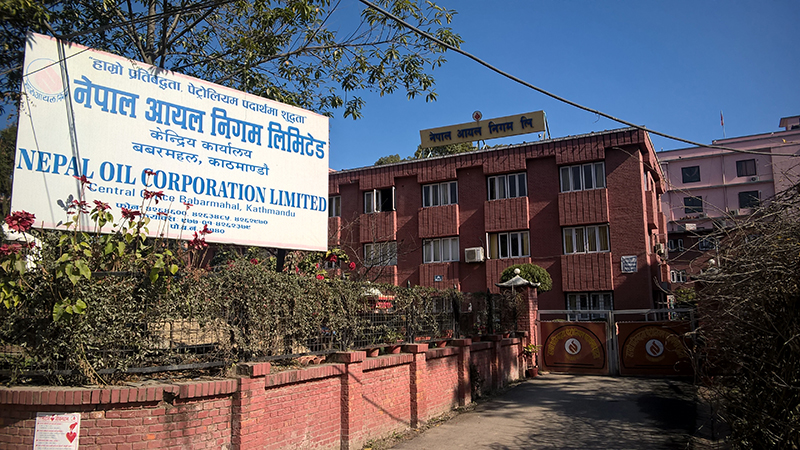NOC okays proposal of five local firms to set up model fuel pumps
Kathmandu, April 18
Nepal Oil Corporation (NOC) has approved the proposal of five domestic firms to operate ‘Model Petroleum Pump’ in the country.
As part of the government’s target to gradually systematise and upgrade fuel distribution system in the country, NOC had sought application from interested parties within a month on January 4, to construct such model fuel stations as envisioned by the Fuel Distribution Bylaw, 2016.
By the time the extended deadline to submit the applications ended in mid-March, 66 domestic companies had shown interest to construct such high-tech fuel stations. Of them, NOC has approved applications of Bikash Oil Store of Pokhara, Om Shree Oil Store of Sarlahi, Mahabodhi Petroleum of Dhankuta, Ripo Mardani Oil Store of Tanahu and Ganapati Oil Store of Siraha.
“We have approved applications of these five firms to construct model petrol pumps after visiting the construction sites of fuel stations they have proposed,” Sitaram Pokharel, spokesperson for NOC, said, adding that these firms have also met the criteria set by the Fuel Distribution Bylaw, 2016.
The NOC has formed an analysis committee to further evaluate all applications and recommend the NOC management to issue licence for the construction of such petrol pumps. “The committee will shortly analyse applications of other firms that have shown interest to set up such model petrol pumps,” Pokharel said.
With an aim to standardise fuel distribution system in the country, NOC had amended its Fuel Distribution Bylaw in January and had introduced the concept of ‘model petroleum pump’ (expected to cost almost Rs 10 million) in the country. The new bylaw has set various parameters for the construction and operation of such fuel stations. Among others, such model fuel station should be constructed on 13 ropanis of land (for Tarai) and on five ropanis of land (for Hilly and Himalayan regions).
These fuel stations should ensure regular water and power supply and should have at least two toilets for men, four toilets for women and one for handicapped people. Similarly, such petrol pumps should have ample parking area, well-managed drainage and separate sales counters for petrol and diesel, along with high capacity petroleum storage facility.
Moreover, such ‘model petrol pumps’ should introduce card swapping facility to customers, have well-managed cafeteria, ATM lounges, vehicle washing and repairing centres and a digital board displaying quality and quantity of fuel.
Meanwhile, petroleum dealers have been saying that the government should not discourage petroleum dealers operating their business in traditional manner. “It is good to standardise fuel distribution system. However, the government should not force dealers to go with the concept of ‘model petrol pump’ as it would add huge financial burden on them,” Lilendra Pradhan, president of Nepal Petroleum Dealers Association (NPDA), said.






